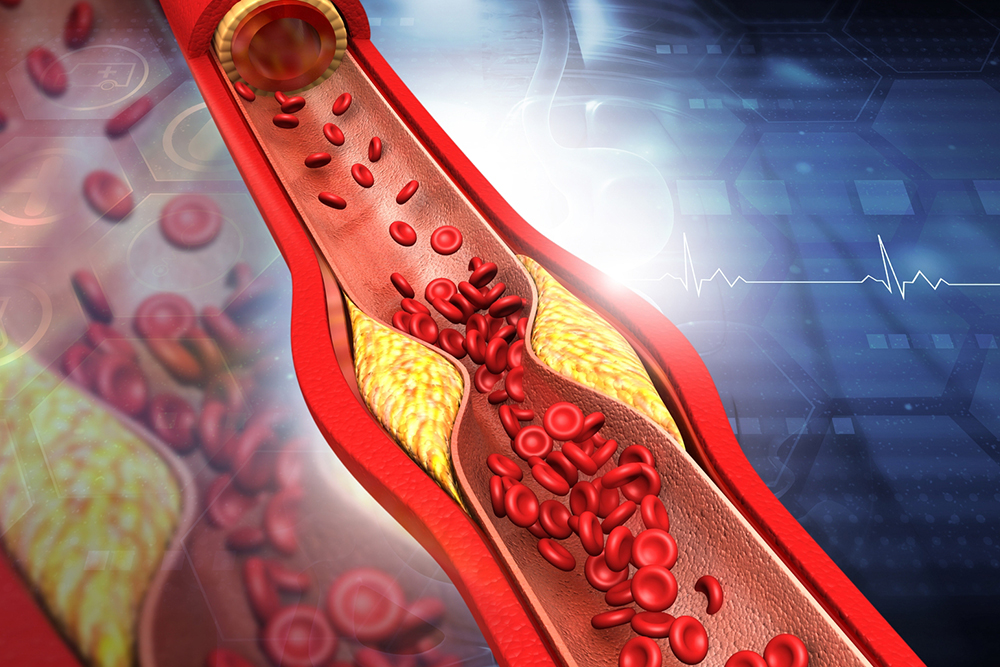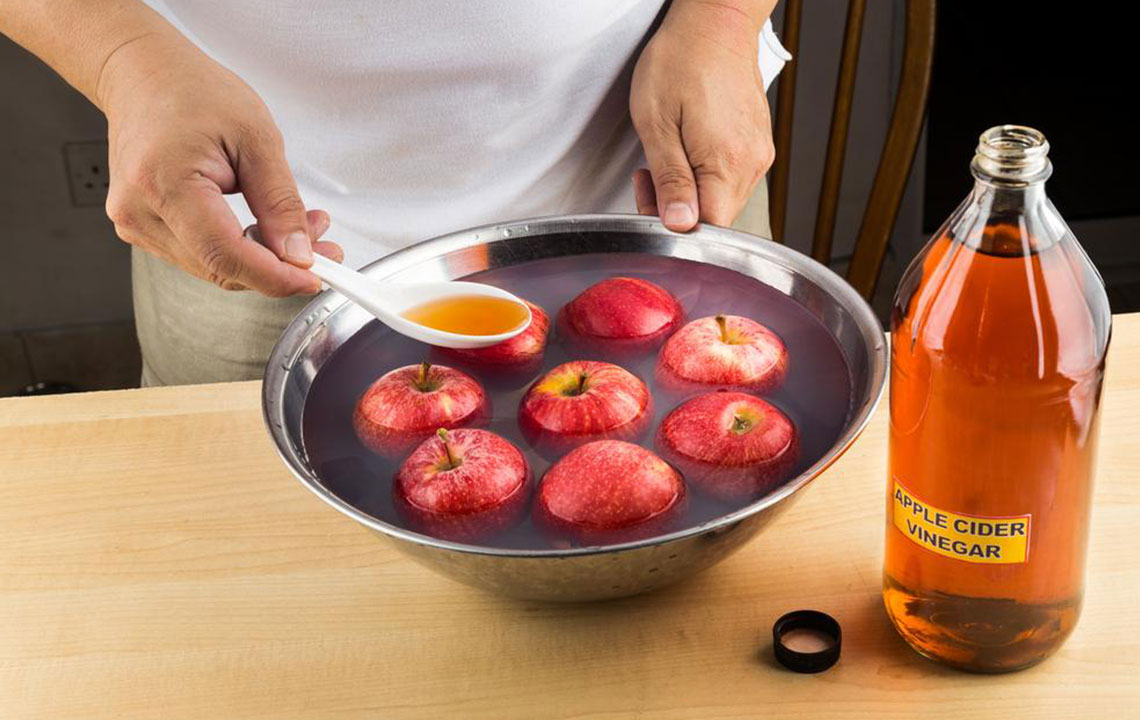Comprehensive Approaches to Prevent and Reduce Arterial Plaque Bformation for Heart Health
Discover comprehensive strategies to prevent and reduce arterial plaque buildup naturally. Learn about heart-healthy foods like fatty fish, berries, citrus fruits, and flax seeds, along with lifestyle tips such as stress management, reduced salt intake, and regular exercise. These scientifically supported methods help promote vascular health, lower inflammation, and prevent cardiovascular diseases without invasive procedures. Incorporating these approaches into daily routines can significantly improve your heart health and overall wellbeing, making them essential for anyone aiming to maintain healthy arteries and prevent heart-related issues.

Comprehensive Approaches to Prevent and Reduce Arterial Plaque Formation for Heart Health
Arterial plaque buildup, also known as atherosclerosis, is a significant contributor to cardiovascular diseases and is characterized by the accumulation of fatty deposits, cholesterol, and other substances inside the arteries. This condition can lead to narrowed arteries, restricted blood flow, and increased risks of heart attacks and strokes. The primary causes of plaque formation include elevated blood sugar levels, high cholesterol, unhealthy dietary habits, physical inactivity, and smoking. While medical interventions like angioplasty and medication are often necessary in advanced stages, adopting natural, lifestyle-based strategies can effectively prevent or slow down the progression of arterial plaque accumulation. This comprehensive guide explores scientifically backed methods to improve vascular health, reduce risk factors, and promote overall heart wellness through nutritional choices, physical activity, stress management, and lifestyle modifications.
1. Incorporate Omega-3 Rich Foods, Especially Fatty Fish, into Your Diet
Consuming omega-3 fatty acids is one of the most effective dietary strategies for preventing arterial plaque buildup. Fatty fish such as salmon, mackerel, sardines, tuna, and anchovies are abundant in these essential fats. Omega-3s possess potent anti-inflammatory properties, which help reduce the inflammation within blood vessels that promotes plaque formation. Regular intake of omega-3s has been linked to lower triglyceride levels, decreased blood clot formation, and improved overall vascular function. Health experts recommend consuming at least two servings of fatty fish per week to significantly lower the risk of cardiovascular disease. For those with dietary restrictions, omega-3 supplements derived from fish oil can be an alternative, but whole foods are generally preferred for their additional nutrients and bioavailability.
2. Eat a Variety of Berries for Vascular Anti-oxidants
Berries are renowned for their rich antioxidant content, particularly compounds like quercetin, anthocyanins, and vitamin C. These antioxidants combat oxidative stress, a key contributor to arterial damage and plaque formation. Regular consumption of berries such as blueberries, raspberries, blackberries, and strawberries has been shown to lower levels of bad cholesterol (LDL), improve blood vessel elasticity, and help regulate blood pressure. Incorporating berries into your diet through smoothies, salads, or as a snack can provide continuous cardiovascular benefits. The high fiber content in berries also helps reduce cholesterol absorption within the intestines, further supporting heart health.
3. Increase Intake of Citrus Fruits for Heart Protection
Fruits like oranges, grapefruits, lemons, and limes are rich in antioxidants such as vitamin C and flavonoids, which play a crucial role in reducing vascular inflammation. These compounds help diminish oxidative stress and protect against endothelial damage—the lining of blood vessels. Citrus fruits also contain soluble fiber, which helps lower LDL cholesterol and triglyceride levels. For optimal health benefits while minimizing sugar intake, opt for fresh citrus or freshly squeezed juices without added sugars. Regular consumption of citrus fruits has been associated with reduced blood pressure and improved arterial flexibility, both beneficial in preventing plaque buildup.
4. Use Ground Flax Seeds as a Nutritional Supplement
Ground flax seeds are an excellent source of plant-based omega-3 fatty acids, dietary fiber, and lignans—compounds with antioxidant properties. Including ground flaxseeds in your meals can help lower blood sugar levels, improve insulin sensitivity, and reduce inflammation, all of which are important factors in blocking the development of atherosclerosis. Sprinkling ground flax over oatmeal, yogurt, or adding it to smoothies enhances fiber intake and supports cholesterol regulation. Additionally, flax seeds provide a sustainable source of omega-3s for those who prefer plant-based options.
5. Reduce Salt Consumption to Prevent High Blood Pressure
Excessive sodium intake can elevate blood pressure, a major risk factor for arterial damage and plaque formation. Monitoring and limiting salt intake in daily meals is essential for maintaining healthy blood pressure levels. Instead of relying on salt, flavor dishes with herbs and spices such as garlic, turmeric, paprika, and basil, which also possess anti-inflammatory and antioxidant properties. Preparing meals with fresh ingredients and reducing processed foods high in hidden sodium can significantly mitigate cardiovascular risks associated with hypertension and atherosclerosis.
6. Practice Stress Management Techniques for Vascular Health
Chronic stress is known to elevate blood pressure and promote inflammation, both of which can accelerate arterial plaque formation. Incorporating regular stress-relief practices such as mindfulness meditation, yoga, deep-breathing exercises, and adequate sleep can substantially reduce inflammation and support vascular integrity. Physical activity, alongside stress management, improves circulation and promotes the development of healthier blood vessels, contributing to a decreased risk of atherosclerosis.
7. Engage in Regular Physical Exercise
Physical activity is a cornerstone of cardiovascular health. Engaging in aerobic exercises like brisk walking, jogging, cycling, or swimming strengthens the heart, enhances blood flow, and aids in removing existing arterial plaques. Exercise also promotes the production of nitric oxide, a molecule that relaxes blood vessels and improves their flexibility. The CDC recommends at least 150 minutes of moderate-intensity aerobic exercise or 75 minutes of vigorous activity per week for adults. Consistent physical activity not only prevents plaque buildup but also helps manage weight, blood pressure, and blood sugar levels—key factors in cardiovascular health. Tailoring exercise routines to one’s age and fitness level, ideally with professional guidance, ensures safety and maximizes benefits.
8. Maintain an Active Lifestyle Throughout the Day
In addition to structured workouts, staying physically active during daily routines has profound health benefits. Simple practices like taking short walking breaks during work, using stairs instead of elevators, or standing periodically instead of prolonged sitting can significantly improve circulation and prevent arterial plaque progression. Using a pedometer or activity tracker can help motivate regular movement. For individuals with sedentary jobs, integrating movement into daily habits is crucial for long-term heart health. These small, consistent actions cumulatively help in reducing the risk of cardiovascular diseases and support healthy blood vessels.
Summary: Adopting a comprehensive approach to heart health involves dietary modifications, regular exercise, stress management, and lifestyle choices that collectively prevent or slow down arterial plaque accumulation. Emphasizing the intake of omega-3 fatty acids, antioxidants from berries and citrus fruits, fiber-rich seeds, and herbs while reducing salt and managing stress can significantly improve vascular function. Coupled with consistent physical activity and an active daily routine, these strategies form a resilient defense against cardiovascular diseases, promoting long-term wellbeing and optimal arterial health.





